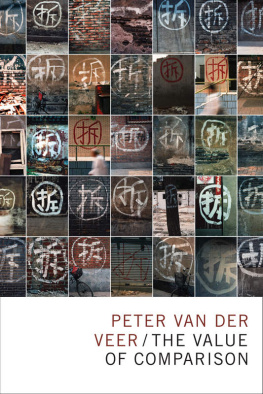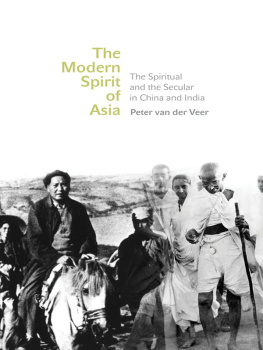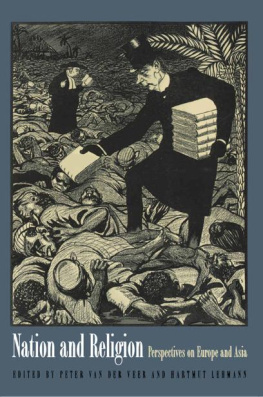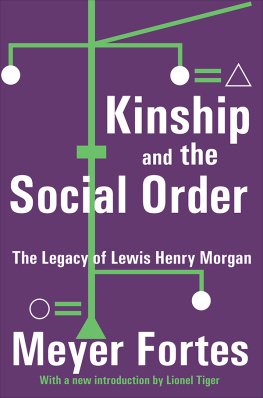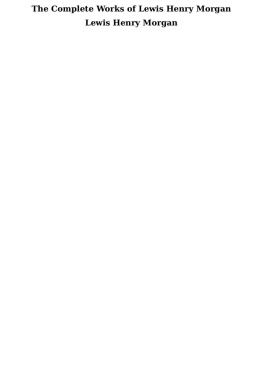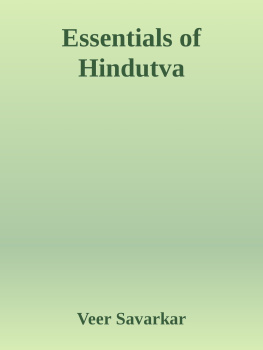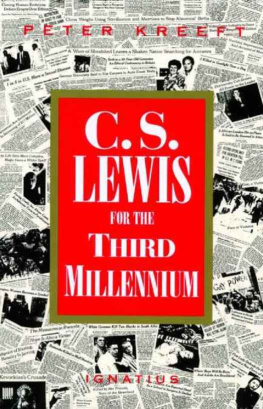Peter van der Veer - The Value of Comparison (The Lewis Henry Morgan Lectures)
Here you can read online Peter van der Veer - The Value of Comparison (The Lewis Henry Morgan Lectures) full text of the book (entire story) in english for free. Download pdf and epub, get meaning, cover and reviews about this ebook. year: 2016, publisher: Duke University Press, genre: Politics. Description of the work, (preface) as well as reviews are available. Best literature library LitArk.com created for fans of good reading and offers a wide selection of genres:
Romance novel
Science fiction
Adventure
Detective
Science
History
Home and family
Prose
Art
Politics
Computer
Non-fiction
Religion
Business
Children
Humor
Choose a favorite category and find really read worthwhile books. Enjoy immersion in the world of imagination, feel the emotions of the characters or learn something new for yourself, make an fascinating discovery.
- Book:The Value of Comparison (The Lewis Henry Morgan Lectures)
- Author:
- Publisher:Duke University Press
- Genre:
- Year:2016
- Rating:4 / 5
- Favourites:Add to favourites
- Your mark:
- 80
- 1
- 2
- 3
- 4
- 5
The Value of Comparison (The Lewis Henry Morgan Lectures): summary, description and annotation
We offer to read an annotation, description, summary or preface (depends on what the author of the book "The Value of Comparison (The Lewis Henry Morgan Lectures)" wrote himself). If you haven't found the necessary information about the book — write in the comments, we will try to find it.
The Value of Comparison (The Lewis Henry Morgan Lectures) — read online for free the complete book (whole text) full work
Below is the text of the book, divided by pages. System saving the place of the last page read, allows you to conveniently read the book "The Value of Comparison (The Lewis Henry Morgan Lectures)" online for free, without having to search again every time where you left off. Put a bookmark, and you can go to the page where you finished reading at any time.
Font size:
Interval:
Bookmark:

THE LEWIS HENRY MORGAN LECTURES /
A SERIES EDITED BY ROBERT J. FOSTER AND DANIEL R. REICHMAN
PETER VAN DER VEER / THE VALUE OF COMPARISON
With a Foreword by Thomas Gibson
Duke University Press Durham and London 2016
2016 DUKE UNIVERSITY PRESS. All rights reserved
Printed in the United States of America on acid-free paper
Designed by Courtney Leigh Baker
Typeset in Trade Gothic and Arno Pro by Westchester Publishing Services
Library of Congress Cataloging-in-Publication Data
Names: Veer, Peter van der, [date] author. | Gibson, Thomas, [date] writer of foreword.
Title: The value of comparison / Peter van der Veer; with a foreword by Thomas Gibson.
Other titles: Lewis Henry Morgan lectures.
Description: Durham : Duke University Press, 2016. | Series: The Lewis Henry
Morgan lectures | Includes bibliographical references and index.
Identifiers: LCCN 2015043613
ISBN 9780822361398 (hardcover : alk. paper)
ISBN 9780822361589 (pbk. : alk. paper)
ISBN 9780822374220 (e-book)
Subjects: LCSH : AnthropologyChinaComparative method. | EthnologyChinaComparative method. | SociologyChinaComparative method. | AnthropologyIndiaComparative method. | EthnologyIndiaComparative method. | SociologyIndiaComparative method.
Classification: LCC GN 34.3. C 58 V 447 2016 | DDC 305.80095
LC record available at http://lccn.loc.gov/2015043613
COVER ART: Wang Jinsong, One Hundred Signs of Demolition , 19001999 (detail). Photographs. Courtesy of the artist.
CONTENTS
A founder of modern cultural anthropology, Lewis Henry Morgan was one of the city of Rochesters most famous intellectual figures. He was also a patron of the University of Rochester and left a substantial bequest to the University for the founding of a womens college. The lectures named in his honor have now been presented annually for over fifty years and constitute the longest running such series in North America. Each lecture is intended to result in the publication of a monograph that embodies some aspect of the current state of anthropological thought.
This book is based on the Lewis Henry Morgan Lecture that Professor Peter van der Veer delivered at the University of Rochester on November 13, 2013. The lecture was followed by a daylong workshop in which members of the Department of Anthropology and a group of invited guests discussed the entire manuscript. We had to cast our net particularly wide in this case because of the ambitious nature of the topic, the value of anthropological comparison, and the wide range of ethnographic examples that were discussed. The formal discussants included Joanne Waghorne and Bethany Lacina on South Asia; Magnus Fiskesj and Thomas Gibson on Southeast Asia; and Gareth Fisher and John Osburg on East Asia.
In this book, Professor van der Veer argues that many recent attempts at comparison in anthropology have been based on a misplaced quest for generality. This quest may be based on pan-human psychic universals, whether those that, like rational action theory, privilege the Mind, or those that, like cognitive science, privilege the brain; on the mathematical manipulation of sets of big data that ignore the relevant conceptual schemes that governed the activities that generated the data in the first place; or on the uncritical extension of Western cultural categories, such as religion, to social and historical contexts to which they either do not apply or in which they possess very different relationships to other institutions such as the state or the economy.
But while rejecting generalizing forms of comparison, Professor van der Veer insists first that there is no escape from comparison when we deal with other societies since we are always already translating into Western languages what we find elsewhere. Second, when we do encounter concepts in other societies that are similar to Western concepts, this is often because they were spread by Western imperialism. But even in this case, the concepts have acquired new meanings as local actors have reinterpreted them under different conditions. It is therefore pointless to try to craft universal definitions of concepts like religion and to assume that we are dealing with the same kind of practice in different situations, even when the practices have the same name. Such practices do not refer to universal attributes of human beings but to historical processes of universalization and particularization that are subject to a balance of forces on a world scale.
In place of the generalism that strives to make statements that are valid for whole societies, nations, or even civilizations, van der Veer advocates the intensive study of fragments of social life like caste, race, or gift exchange. The meaning of these fragments are determined in each case by their relationship to other fragments of social life with which they are intertwined in particular times and places. As this sort of inductive comparison proceeds, it will inevitably lead us to rethink the meaning of the concepts with which we started, and to ask new questions about the way they function in our own society.
The central part of the book consists in a series of comparative analyses of the different places occupied by social fragments such as money, markets, Muslim minorities, iconoclastic movements, mountain tribes, and public sanitation in different parts of Europe, India, Southeast Asia, and China. Professor van der Veer does not approach these regions as coherent civilizations defined by simple, unchanging essences. Each region is composed of complex sets of traditions that are engaged in endless internal debates with one another and are endlessly borrowing and translating concepts and practices from other regions around the world.
Given Professor van der Veers insistence on the need to stay focused on particular ethnographic examples, the best way to characterize his argument , he compares the way middle-class attitudes toward the descendants of slaves in the United States and of peasants in China shifted in such a way that the state came to take responsibility for the public hygiene of all citizens. By contrast, the persistence of hierarchical attitudes toward the descendants of untouchable bonded laborers in India has prevented the state from instituting effective public hygiene measures in the slums that surround middle-class housing.
Professor van der Veer makes a sustained argument for tempering the thirst for generality with the rigorous analysis of particular ethnographic situations, and for using those analyses to critique our own traditions of thought for the errors of ethnocentrism and essentialism. This book thus constitutes a spirited defense of the continuing relevance of the comparative project of anthropology for both the humanistic and the quantitative social sciences. It also serves as a reminder of the ethical responsibility of all those who study the human condition to subject their own categories and practices to continuous critique.
THOMAS GIBSON
Editor (20072013),
Lewis Henry Morgan Lecture Series
The Lewis Henry Morgan Lectures of 2013 were given just a few weeks before the birth of my twins, Linh and Koos, and are thus indelibly connected in my mind to that joyful event. I deeply appreciate the opportunity to organize my thoughts on the importance of comparison in anthropology and on the unique contribution of anthropology to the social sciences. Tom Gibson extended the original invitation to give the lectures on comparison, and he, Robert Foster, and the rest of the Anthropology Department at the University of Rochester have been extremely welcoming and supportive. Magnus Fiskesj from Cornell University and Joanne Waghorne and Gareth Fisher from Syracuse University were among the specialists invited to comment on my presentations. Graduate students from the University of Rochester, Columbia University, Cornell University, and the University of Chicago also participated in the discussion. I have greatly benefited from their contributions.
Next pageFont size:
Interval:
Bookmark:
Similar books «The Value of Comparison (The Lewis Henry Morgan Lectures)»
Look at similar books to The Value of Comparison (The Lewis Henry Morgan Lectures). We have selected literature similar in name and meaning in the hope of providing readers with more options to find new, interesting, not yet read works.
Discussion, reviews of the book The Value of Comparison (The Lewis Henry Morgan Lectures) and just readers' own opinions. Leave your comments, write what you think about the work, its meaning or the main characters. Specify what exactly you liked and what you didn't like, and why you think so.

